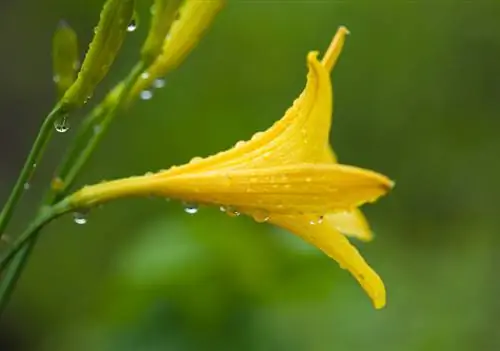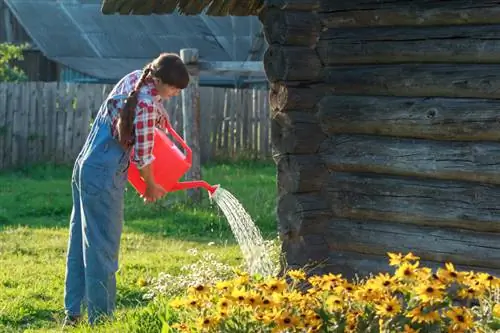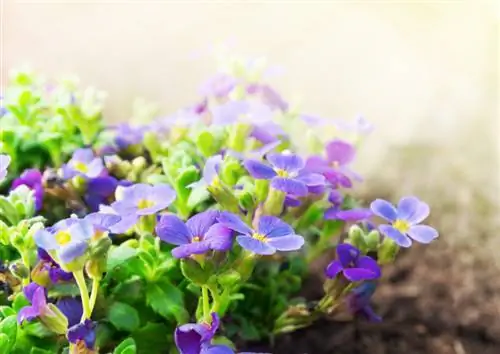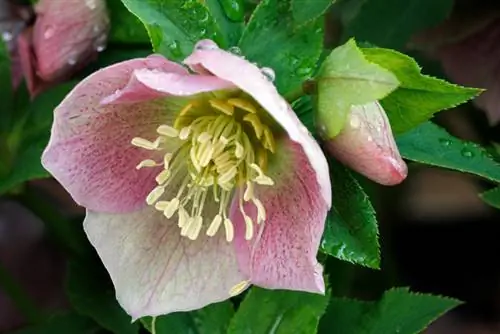- Author admin leonars@hobbygardeners.com.
- Public 2023-12-16 16:46.
- Last modified 2025-01-23 11:20.
They are true floral beauties. Some of them smell wonderfully exotic. But to keep daylilies he althy, they need some care. What can be avoided and which procedures are urgently necessary?
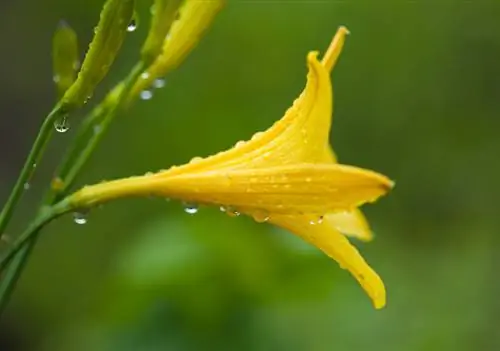
What is the optimal care for daylilies?
Daylilies require regular watering, especially from April to June, moderate fertilization from the second year onwards, and should be rejuvenated by dividing them. They are frost hardy and generally not very susceptible to diseases or pests.
Do daylilies survive dry periods?
Thanks to their fleshy roots, daylilies survive dry periods excellently. But this requires that they have grown properly. Freshly planted specimens should best be kept slightly moist in the root area. A thick layer of mulch is recommended to prevent the soil from drying out.
If you don't want to miss out on abundant blooms, you should water your daylilies regularly, especially between April and June. During this period, daylilies have an increased water requirement. Both rainwater and calcareous tap water can be used for watering.
Do you have to fertilize daylilies?
Caring for daylilies includes watering and moderate fertilization. From the second year onwards, daylilies in the bed should be fertilized once a year. Ideally, the fertilizer is applied in May and June at the latest. The following are suitable, among others:
- Long-term fertilizer
- Flowering fertilizer
- Plant manure such as: B. Comfrey manure
- Compost
- Pond water
Should you protect them from frost?
Daylilies are frost hardy and do not require protection from low temperatures. If you bring your daylily underground in autumn, it is advisable to protect it in the first winter with a thick layer of mulch made of bark, leaves or brushwood.
How can daylilies be rejuvenated/propagated?
Daylilies should be rejuvenated when their abundance of flowers diminishes. They are divided as follows:
- Dig up roots in spring or autumn
- Remove roots from soil
- Cut the root in the middle with a sharp knife (or separate at newly formed sections)
- Plant roots separately
- Short the leaves of the individual plants to 10 cm
Is there a risk of disease or pest infestation?
As a rule, daylilies are not affected by diseases or pests. If care is made incorrectly, root rot can occur and daylily gall midges sometimes attack the flower buds to destroy them. The gall midges can be eliminated by cutting off the affected buds and disposing of them.
Tips & Tricks
Cut off dried flowers if you don't want the daylily to produce seeds that rob it of extra strength.

